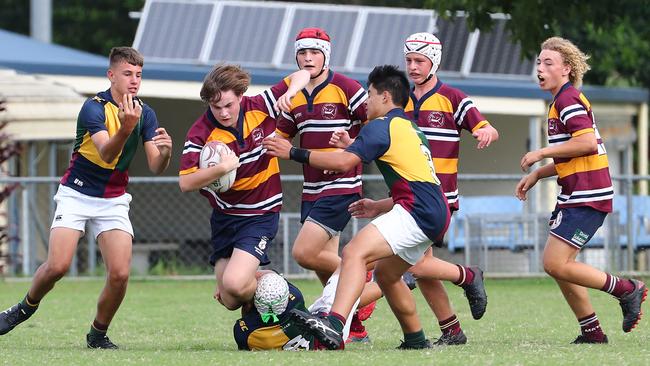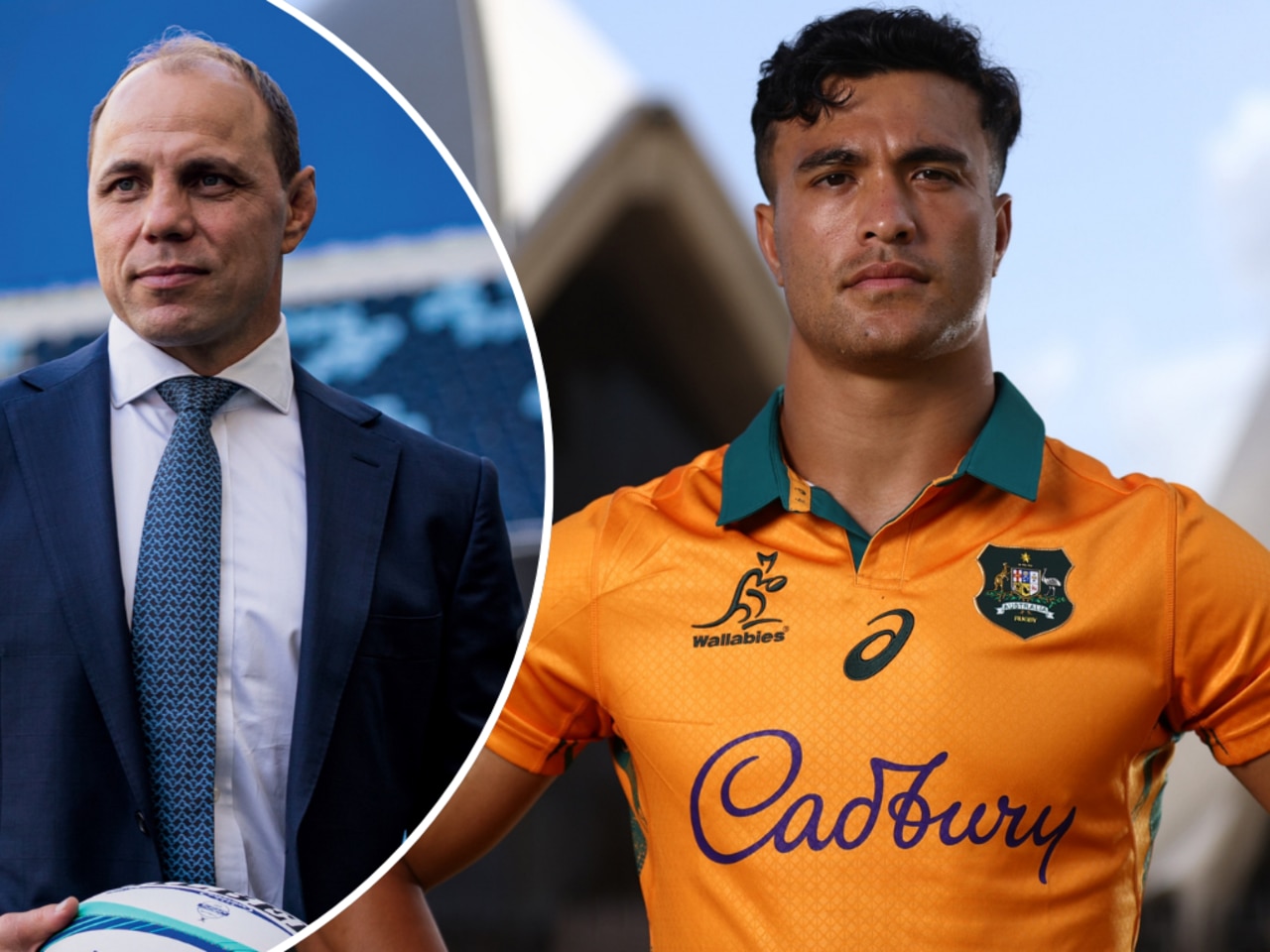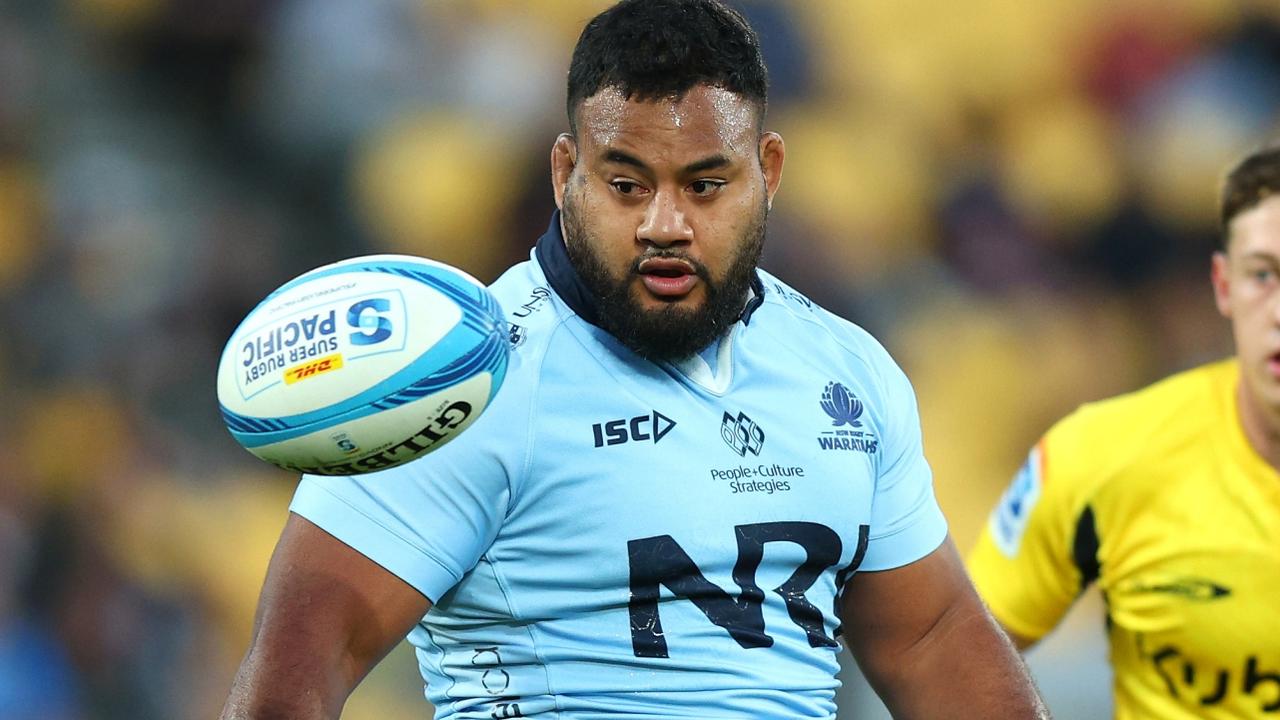
Yet again, your comments are instructive, though those who should be instructed still seem to take no notice.
Malcolm says: “Rugby is dying in Australia. Even the private schools in NSW are transitioning to AFL. It is, and will remain, a minor sport.”
And Stuart: “Thanks Alan. I agree 100 peer cent with the main theme of the article. Rugby administrators need to get their act together rather than sell out to private equity that will only act in their own commercial interests. Hope this reaches the people that need to hear it.”
A forlorn thought.
Roger says: “RA already sold out when they switched to Stan. Have not watched rugby since. It’s back to watch community rugby.”
None of your thoughts are wasted on me, but I’m not the one making the decisions.
Let us go briefly to where the game begins, apart from grassroots support, and that is with our schoolboys. Herein lies one of the biggest threats to participation numbers in our game.
For years and years, great things have happened in schoolboy rugby. The quality of the emerging talent is often breathtaking. Some of the programs are on a par with the best rugby programs on offer.
In recent times, it’s been refreshing to see Queensland and NSW invite schoolboy teams to play curtain-raisers before the Super Rugby AU matches. I well remember, when I coached schoolboy rugby, how important that was to these ambitious teenagers.
That said, we need to be mindful of what is happening in England, because it has the potential to impact on the schoolboy game here.
As I write, a number of former England players are preparing a legal case against the RFU, England Rugby and World Rugby. The players are currently suffering from concussion-related illnesses, such as early dementia and depression. Clearly, the rugby world is watching this space very carefully.
You will recall, in 2014, the NFL was forced to pay former players, suffering from concussion-related illnesses, over $1.2 billion in compensation.
A recent survey taken in the UK has uncovered some frightening statistics in relation to concussion, which may dramatically impact participation numbers.
According to the survey, almost 50 per cent of amateur players were going to quit rugby, or reduce the number of games they play, as a result of negative media surrounding the former players’ litigation case against the RFU and World Rugby.
In the UK, there are approximately 350,000 registered players. They have a real issue if 50 per cent of their players are considering dropping out or scaling back their involvement.
In Australia, we have about 80,000 participants in our game, the vast majority of whom are schoolboys. If our numbers were to drop by 50 per cent, it would be a catastrophe for the game in our country.
The game faces a dilemma. We all want more ball-in-play time because we want to see more action; but more action can mean more injuries.
Concussion accounts for around 30 per cent of all injuries, more than any other type of injury in the professional game; 20 per cent of all players will be concussed each season.
But, if 20 per cent of all players in Australia suffer concussion each season, are we talking about 17,000 concussions. Remember, the vast majority of our players are schoolboys.
We know that serious concussion can lead to poor cognitive function, memory loss, anxiety, depression and early onset of dementia. Our game does not want to be responsible for growing mental health issues in teenagers.
Our leaders need to consider seriously where rugby is going and make sure that parents are confident their children will be safe. This can’t be swept under the carpet.
Are World Rugby and Rugby Australia up to the task?
At this juncture I want to recognise the efforts made to celebrate the Anzac spirit last weekend. The way both codes embraced Anzac Day, in Super Rugby and the NRL, was most commendable.
Schoolboy rugby teams around the country also paid tribute to our Anzacs before their first XV fixtures; and those schoolboy sides have a proud record of providing our game and our Defence Forces with committed and courageous young men.
None more so than the distinguished sportsman William Tasker, who attended Newington College in Sydney between 1906 and 1911.
He represented the school’s first XV for three years and captained Newington to a GPS premiership in his final year.
Months after finishing school, Tasker was named in the 24-man Wallaby squad to tour America.
Unfortunately for Tasker, on that tour, he became the first Wallaby to be sent off for unsportsmanlike conduct in a tour match against the University of California. Maybe that’s how he came by the nickname Twit.
Tasker won his first Test match cap on the New Zealand tour in 1913 and played six times against the All Blacks before enlisting to fight in World War I, in 1914, aged 23, joining the 13th Battalion of the Australian Imperial Force.
He took part in the Anzac Cove landings. He helped establish and defend the front lines in Gallipoli. After a few months, Tasker was seriously wounded and was sent home in 1915.
At 24, he could barely walk. His rugby career was over, but he wanted to fight on, despite his massive injuries.
In 1916, Tasker convinced authorities he could still be useful as a gunner in the 116th Howitzer Battery, 13th Field Artillery Brigade. He was wounded four more times while on the Western Front in France, but refused to give up.
Eventually, Tasker was mortally wounded at the Battle of Amiens in 1918, just three months before the Armistice.
He is buried in the military cemetery in Villers-Bretonneux and was awarded the 1914/15 British War Medal and Victory Medal.
Records show more than 5000 rugby players, around the world, enlisted during World War I; 500 were killed, including 11 Wallabies, 17 Waratahs, 3 Queenslanders, 13 All Blacks, 26 English internationals and 30 Scottish internationals.
Instructively, Tony Wilding, the Wimbledon singles champion four years running, 1910, 1911, 1912 and 1913, was also killed during an attack on enemy sniper posts at Neuve Chapelle in France on May 9 in 1915.
As a tribute to our original rugby Anzacs, it would be fitting for Super Rugby teams, in the new trans-Tasman competition, to play for the Anzac Cup, a simple gesture, surely, to recognise the sacrifice made over 100 years ago by so many rugby-playing soldiers.







In last week’s column I addressed World Rugby’s infatuation with private equity and how that could scupper Australia’s 2027 World Cup bid.